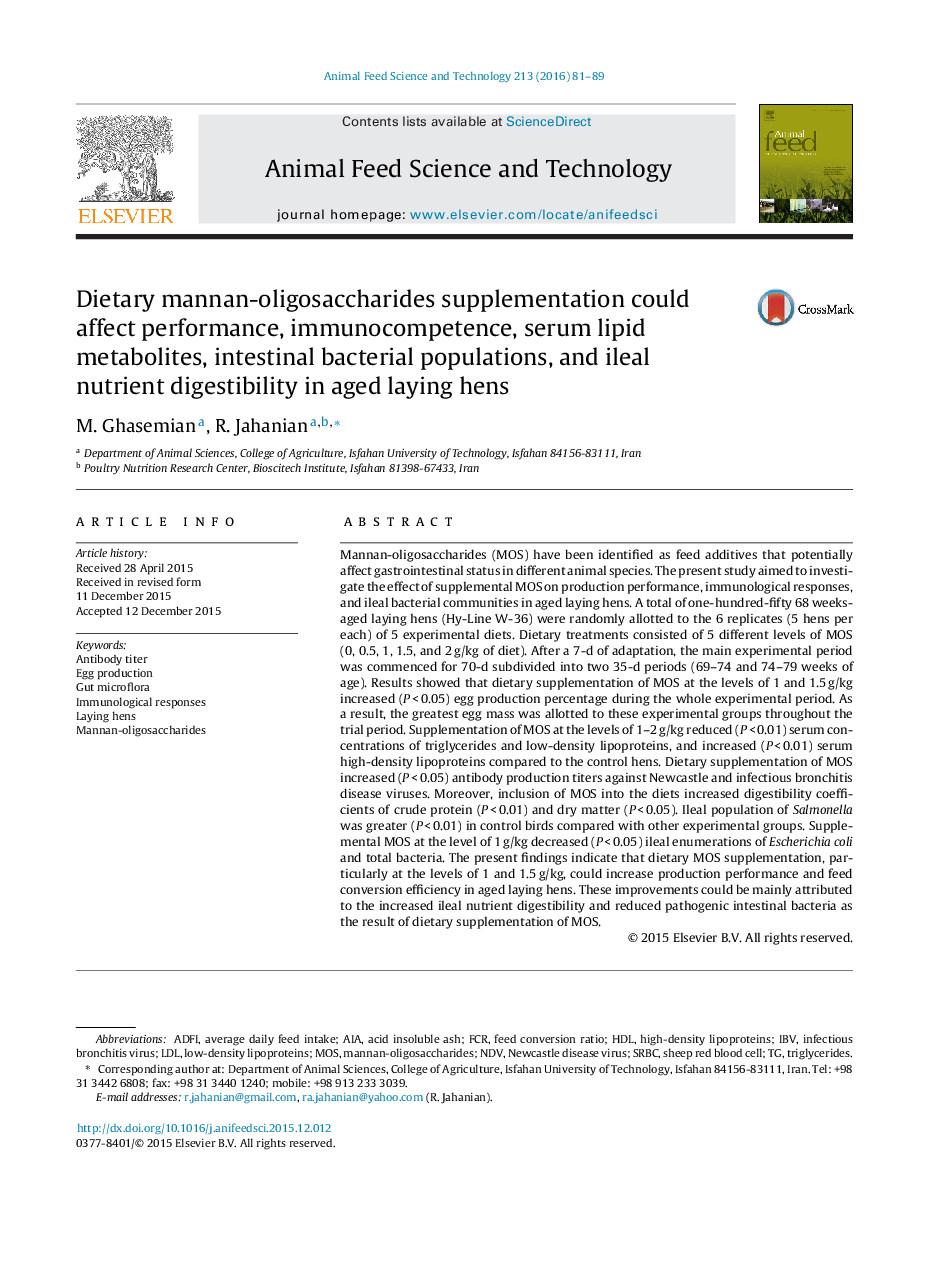| Article ID | Journal | Published Year | Pages | File Type |
|---|---|---|---|---|
| 2419352 | Animal Feed Science and Technology | 2016 | 9 Pages |
•Dietary supplementation of 1 and 1.5 g/kg of MOS increased egg mass.•Supplemental MOS at the levels of 1–2 g/kg increased Newcastle antibody titer.•Inclusion of 1–2 g/kg of MOS into the diet improved digestibility of crude protein.•Dietary supplementation of MOS reduced ileal Salmonella enumeration.•Supplemental MOS at the level of 1 g/kg of diet decreased ileal Escherichia coli.
Mannan-oligosaccharides (MOS) have been identified as feed additives that potentially affect gastrointestinal status in different animal species. The present study aimed to investigate the effect of supplemental MOS on production performance, immunological responses, and ileal bacterial communities in aged laying hens. A total of one-hundred-fifty 68 weeks-aged laying hens (Hy-Line W-36) were randomly allotted to the 6 replicates (5 hens per each) of 5 experimental diets. Dietary treatments consisted of 5 different levels of MOS (0, 0.5, 1, 1.5, and 2 g/kg of diet). After a 7-d of adaptation, the main experimental period was commenced for 70-d subdivided into two 35-d periods (69–74 and 74–79 weeks of age). Results showed that dietary supplementation of MOS at the levels of 1 and 1.5 g/kg increased (P < 0.05) egg production percentage during the whole experimental period. As a result, the greatest egg mass was allotted to these experimental groups throughout the trial period. Supplementation of MOS at the levels of 1–2 g/kg reduced (P < 0.01) serum concentrations of triglycerides and low-density lipoproteins, and increased (P < 0.01) serum high-density lipoproteins compared to the control hens. Dietary supplementation of MOS increased (P < 0.05) antibody production titers against Newcastle and infectious bronchitis disease viruses. Moreover, inclusion of MOS into the diets increased digestibility coefficients of crude protein (P < 0.01) and dry matter (P < 0.05). Ileal population of Salmonella was greater (P < 0.01) in control birds compared with other experimental groups. Supplemental MOS at the level of 1 g/kg decreased (P < 0.05) ileal enumerations of Escherichia coli and total bacteria. The present findings indicate that dietary MOS supplementation, particularly at the levels of 1 and 1.5 g/kg, could increase production performance and feed conversion efficiency in aged laying hens. These improvements could be mainly attributed to the increased ileal nutrient digestibility and reduced pathogenic intestinal bacteria as the result of dietary supplementation of MOS.
